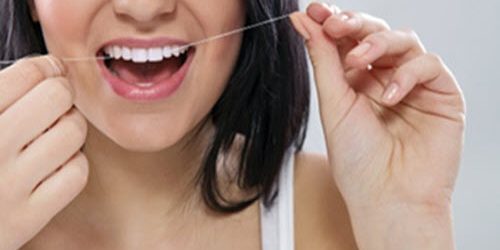You are encouraged to floss each day for a clean and healthy mouth. Do you follow that recommendation? Take a look at some facts about flossing and the truth behind some of the more common myths.
Myth: I only need to floss when I have food caught in my teeth.
It’s important and an effective way to removed trapped particles of food from between your teeth, but it is not the only time when you need to floss! Flossing also removes dental plaque from between your teeth. Plaque between your teeth can make your gums inflamed leading to tooth decay, gum disease, and even tooth loss.
Myth: Flossing is difficult.
Flossing has never been easier! Your dentist or dental hygienist can show you’re the basic technique, but if you struggle to floss the traditional way, try a floss holder. Most people find these easier to use and they can make flossing those difficult to reach teeth in the back much easier.
Myth: Flossing is painful
If you are using the correct type of floss (yes, there are several) and have a healthy mouth, flossing shouldn’t be painful. Regular flossing also builds up your gum tissue. IF you are experiencing pain during flossing, contact your dentist!
Myth: I should stop flossing if my gums bleed
Bleeding is totally normal and definitely not a reason to give up flossing! However, important to note, bleeding during flossing can alert you to some potential problems. People with gum disease usually bleed more than others when they floss. Look at your gums, if they’re inflamed, you might have gum disease. Additionally, some people bleed because they’re flossing too hard. Be a little gentler with your flossing technique and you may bleed less.
Myth: I can’t floss because my teeth are very tight
Flossing teeth with very little space between them makes flossing challenging but not impossible. Try using a seesaw motion to get the floss in between your teeth. You can also try a different type of floss. Waxed floss is easier to use when your teeth are tight. Some types of floss are also thinner than others.
Myth: Flossing makes receding gums worse
Flossing can actually prevent gums from receding since it cleans food particles and bacteria out from below the gum line.
Myth: I shouldn’t floss because I have braces
NO NO NO – braces certainly make flossing harder, but it is imperative you continue flossing while you wear braces. If you’re having difficulty with flossing, talk to your dentist or orthodontist about techniques you can use.
Flossing is very important to your oral health. If you have any questions about flossing, call Advanced Dentistry of Collegeville at (610) 489-5555.







